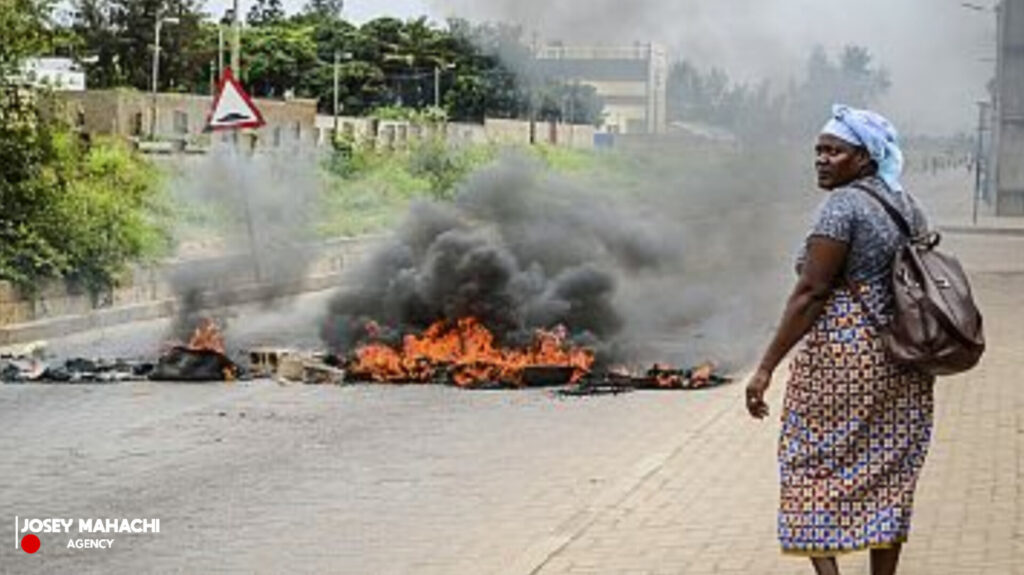By : Lloyd Mahachi
The aftermath of Mozambique’s disputed presidential election has driven nearly 3,000 people to seek refuge in neighboring countries.
This massive exodus is a result of the ongoing violence and unrest that has gripped the nation for nearly two months.
Mozambicans have been demonstrating against the October 9 election results, which saw the ruling Frelimo party retain the presidency.
The defeated presidential candidate, Venancio Mondlane, canceled a planned address on Thursday, January 2, where he was expected to outline the next phase of the opposition’s protest movement.
The refugee influx has been particularly significant in Eswatini, with nearly 1,000 Mozambicans crossing the border into the kingdom over the past two months.
Many have found shelter at the Malindza Refugee Centre near the border, which is now overwhelmed.
Originally designed to house 250 people, the facility is struggling to accommodate the influx, according to the UN Refugee Agency (UNHCR).
The UN is urgently seeking additional funding to address the crisis.
Further north, Malawi has also seen a surge in refugees, with nearly 2,000 Mozambicans arriving in just one week, the UNHCR reports.
Many fled after attacks and looting in their villages, risking their lives to cross the Shire River by swimming or using makeshift boats.
The situation in Mozambique has been marked by widespread unrest, with protests turning violent and security forces accused of killing at least 10 children and injuring dozens more.
The opposition has alleged election fraud, and the crisis has sparked international concern, with organizations calling for restraint and dialogue to prevent further escalation.
As tensions persist in Mozambique, the strain on neighboring countries and international aid organizations continues to grow.
With limited resources and an increasing number of displaced people, the region faces mounting challenges in addressing this escalating humanitarian crisis.
The crisis has also had a significant impact on the economy, with estimated losses of around $47 million.
The international community is calling for a peaceful resolution to the crisis, with the European Union and other organizations urging the government to address the allegations of election fraud and ensure accountability.
The situation remains volatile, with the opposition vowing to continue protests and the government cracking down on dissent.
The humanitarian crisis in Mozambique is a complex issue, requiring a multifaceted response from the international community.
The UN and other organizations are working to provide aid to those affected, while also calling for a peaceful resolution to the crisis.
As the situation continues, it is clear that a sustained effort will be needed to address the root causes of the crisis and ensure a stable future for Mozambique.
Editor: Josephine Mahachi

